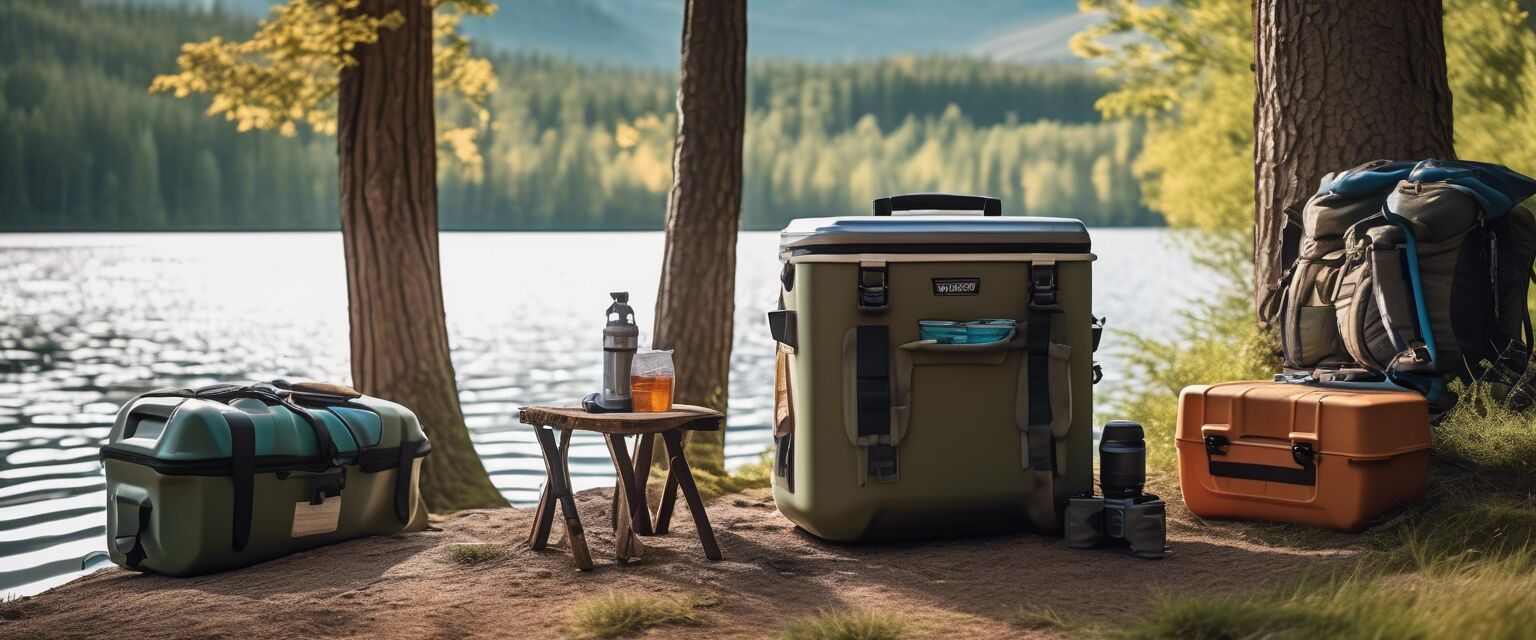
How to Choose the Perfect Cooler for Camping
Key Takeaways
- Consider insulation to keep your food and drinks cold.
- Choose the right size based on your group and duration of the trip.
- Portability is important for easy transport.
- Look for durability to withstand the outdoors.
- Evaluate additional features like ease of cleaning and drainage.
Selecting the right cooler for your camping adventure can significantly enhance your experience. A good cooler keeps your food and drinks chilled and fresh, making your outdoor journey more enjoyable. In this guide, we will explore the important factors to consider when choosing the perfect cooler, especially for beginners.
What to Consider When Choosing a Cooler
1. Insulation
The primary function of a cooler is to keep your items cold for as long as possible. Excellent insulation is essential for this. Here’s what to look for:
- Thickness of the insulation material
- The type of insulation (foam vs. vacuum)
- Cooler design: Look for models with lids that seal tightly.
2. Size
The size of the cooler will largely depend on the number of people you are camping with and how long you will be out in the wild. Here are a few key points:
- For short trips (1-2 days) with fewer people, a compact cooler may suffice.
- For longer trips or larger groups, consider a larger cooler to accommodate ample food and beverages.
- Think about space in your vehicle, as bigger coolers may take up more room.
3. Portability
You’ll want a cooler that is easy to transport. Here are some factors that enhance portability:
- Weight: A lighter cooler is easier to manage.
- Handles: Solid, comfortable handles make carrying easier.
- Wheels: Some coolers come with wheels, making transport even easier on different terrains.
4. Durability
Your cooler needs to withstand rough outdoor conditions. Elements to consider include:
- Material: Look for hard shells that resist impacts and harsh weather.
- Seal: Ensure the cooler has durable seals to prevent leaks.
5. Extra Features
Many coolers come equipped with additional features that enhance usability:
- Drain Plug: This allows for easy cleaning and drainage of melted ice.
- Compartments: Some coolers come with added compartments for separating items.
- Cutting Boards: Certain models may include detachable cutting boards for meal prep.
Types of Coolers
When shopping for a cooler, you will encounter different types that serve varied purposes. Let’s break down the main types:
| Type | Description | Best For |
|---|---|---|
| Hard-Shell Coolers | Sturdy and offers rugged insulation. | Long camping trips |
| Soft-Sided Coolers | Lightweight and portable. | Day trips and picnics |
| Wheeled Coolers | Come with wheels for ease of transport. | Campers with heavier loads |
| Electric Coolers | Plug into your vehicle for continuous cooling. | Car camping |
How to Maximize Your Cooler’s Efficiency
Once you have chosen the right cooler, you’ll want to make sure you use it effectively. Here are some tips:
- Pre-chill the cooler: Before packing, cool it down by placing ice or frozen items inside.
- Use ice packs: They often last longer than regular ice and minimize mess.
- Keep it shaded: Place the cooler in a shaded area to reduce heat exposure.
- Avoid opening the cooler frequently: Every time the cooler is opened, cold air escapes.
Conclusion
Choosing the perfect cooler for camping may seem daunting at first, but considering the factors we have discussed will help you make a smart purchase. From insulation efficiency to portability, the right cooler will keep your food and drinks fresh while making your camping adventure all the more enjoyable.
Pros
- Keeps food and drinks cold for extended periods.
- Offers versatility for multiple camping needs.
- Durable options available for rigorous use.
Cons
- Can be bulky and heavy.
- Some models can be expensive.
- Requires maintenance and cleaning after use.
For further reading on camping gear essentials, check out our guides on Camping Buying Guides to explore other critical items like tents and sleeping gear.
Incorporating these tips will ensure you are well-equipped for your outdoor adventures. Happy camping!